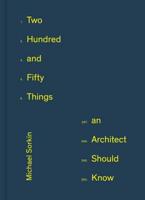Publisher's Synopsis
Richard Payne Knight (1751-1824) was a distinguished connoisseur and critic who played a very significant role in the cultural life of his day. This study traces for the first time the way in which Knight's thought worked across the whole range of his interests, piecing together a coherent philosophical position, based on the sensibly regulated pursuit of pleasure, which, as the nineteenth century advanced, was increasingly out of step with the tenor of the times. Knight's ideas were given concrete expression in his writings and verses, of which his Analytic Inquiry into the Principles of Taste was the most influential. The study shows how Knight's ideas mesh together with each other and how, when seen against the background of the culture of the day, landscape and architecture can take on potent and even inflammatory meaning.







